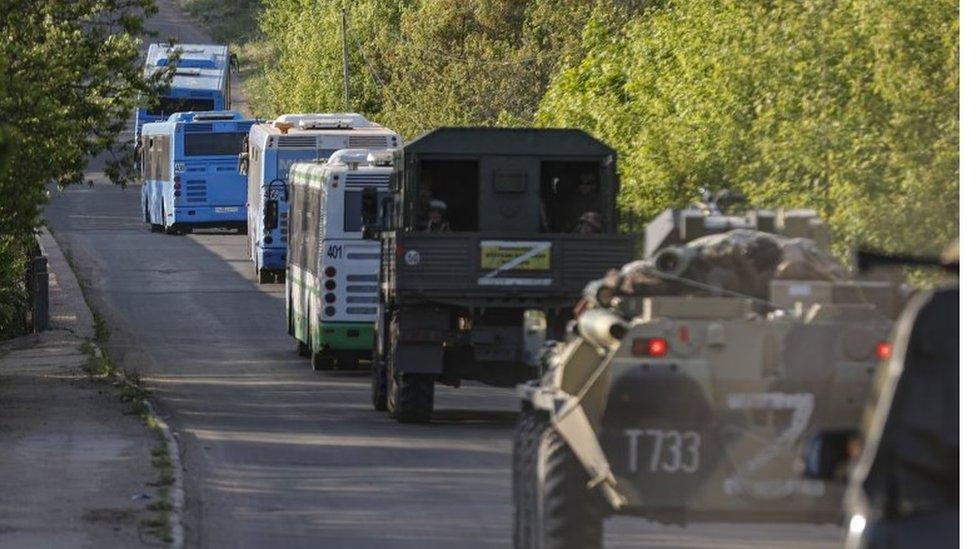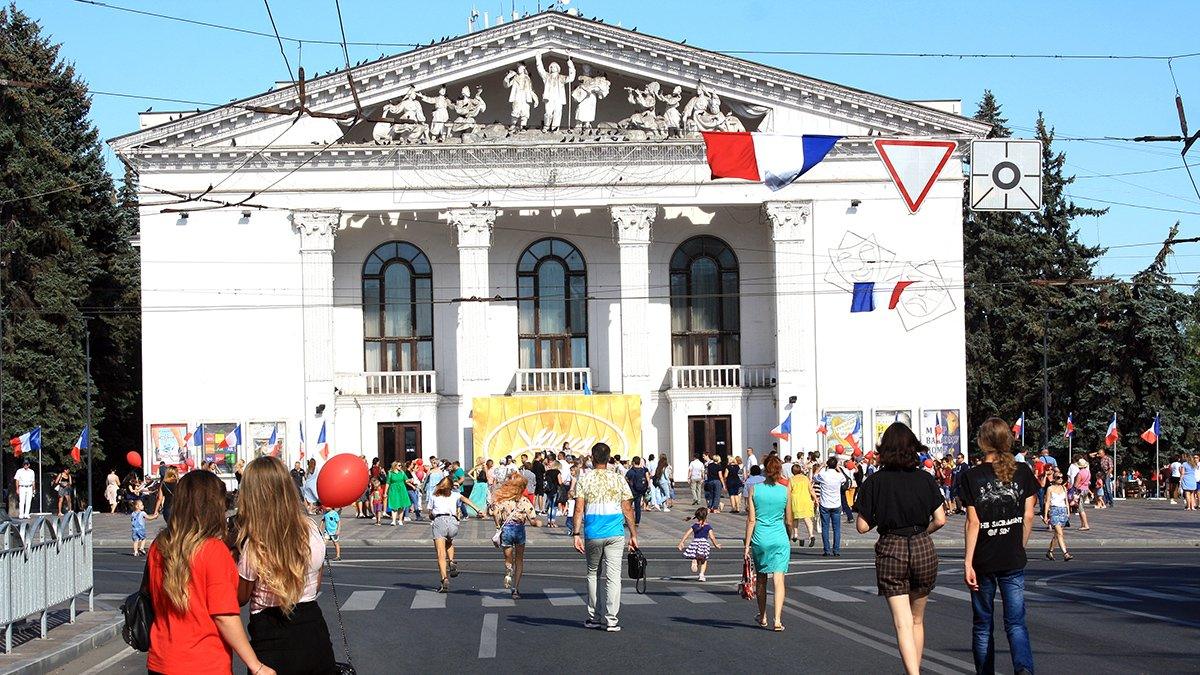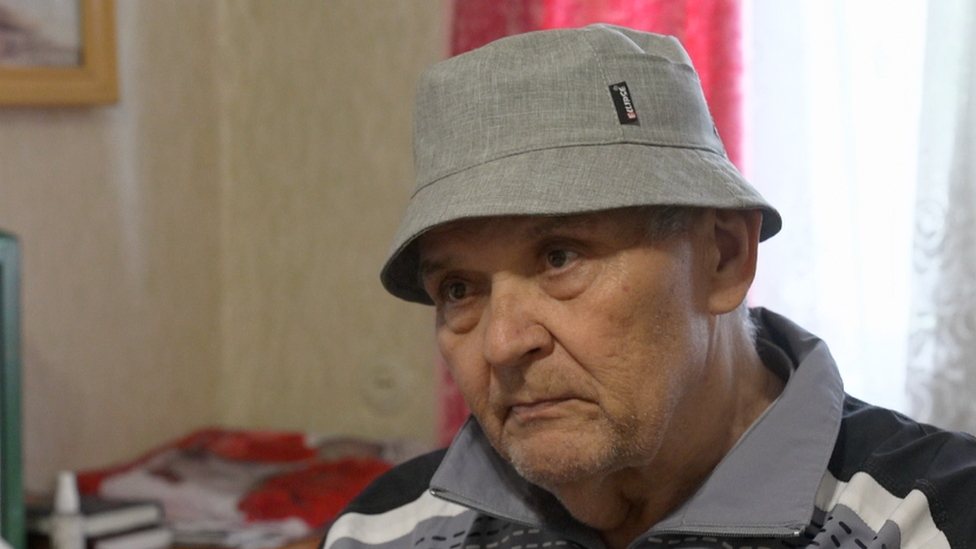Mariupol's Azovstal fighters: What next for Ukraine's captured soldiers
- Published

Ukrainian fighters were evacuated by bus from the Azovstal steelworks
Nearly 1,000 Ukrainian fighters, who have been holed up in the Azovstal steelworks in Mariupol for weeks, have left their positions and handed themselves over to Russian forces and pro-Russian separatists, according to Russia's defence ministry.
The evacuation marks the likely end of the battle for the southern Ukrainian port city of Mariupol, which lies in ruins after weeks of relentless Russian bombardment.
What happens next to the evacuated Azovstal fighters is unclear, with Ukraine calling for a prisoner swap but some in Russia suggesting they should be put on trial.
"Ukraine needs Ukrainian heroes alive," Ukrainian President Volodymyr Zelensky said in his nightly address after the evacuation of the steelworks began, adding that "work continues to bring our lads home".
But when and if that will happen is uncertain and details of the agreement brokered between the two sides, as well as the UN and the Red Cross, are unknown.

War in Ukraine: More coverage
MILITARY: Retired colonel speaks out on Russian TV
ANALYSIS: The spy war within the war
READ MORE: Full coverage of the crisis, external

Ukraine says negotiations are ongoing to exchange the fighters for Russian prisoners of war, but Russia has not confirmed that a swap will take place.
Russian President Vladimir Putin said the soldiers would be treated "in line with the relevant international laws", but there is concern over what will happen to them if they remain in Russian custody.
Ukrainian MP Lesia Vasylenko told the BBC that if they are not returned to Ukraine, "the fate of these very brave men will be absolutely unknown and will be in Russian hands, which is far from an ideal situation".
The signals coming from Russia are concerning for Ukraine.
"Nazi criminals should not be exchanged," the speaker of Russia's lower house of parliament, Vyacheslav Volodin, said on Tuesday. "We should do everything to ensure they are put on trial."
Another senior politician, Leonid Slutsky, went further, calling the evacuated combatants "animals in human form" and saying they should be executed.
And the Donetsk separatist leader, Denis Pushilin, suggested that Ukrainians who are found to be "neo-Nazi war criminals" should face an international tribunal.
But Ukrainian Deputy Defence Minister Hanna Maliar told the BBC that such statements "were most likely made for domestic propaganda in Russia".
Russia claims, without any evidence, that Ukraine is a Nazi hotbed, and one of the key aims of Russia's military operation in Ukraine is to "denazify" the country.
The Azov regiment, whose members are amongst those evacuated from Azovstal, is the most frequent target for Russia's claim that it is fighting against Nazis in Ukraine.
The regiment, which was set up as a volunteer militia in 2014 but is now a National Guard unit, once had links to the far right.
Ultimately, it is likely to be Vladimir Putin who makes the final decision over what happens to the Azovstal fighters.


I think there was a sharp intake of breath right across this country when the news was announced that some of the last soldiers bunkered in the Azovstal steelworks were not just leaving, but leaving to territory occupied by Russia.
It was an impossible choice - if they stayed in the steelworks they would face certain death, but what they face now is, at best, a very, very uncertain fate.
President Zelensky for weeks and weeks had been telling the fighters "please give up if you feel you must, please don't feel you must give your lives in this fight".
Again and again the fighters of the Azov battalion said "no, we must continue to fight".
Last night President Zelensky said this mission to evacuate the remaining soldiers - and to take care of the ones who have already left - involved, in his words, the most influential international mediators.
Because the only thing which has reassured many here, and most of all the families of the fighters, is that there is international involvement, that behind the scenes there is the Red Cross and the United Nations, and they are hoping against hope this can help to persuade Russia.
Mariupol is a strategic prize for the Russians but members of the Azov battalion, a group which has origins in the far right, are a prize for President Putin, who it is feared may parade them to say "see, I told you there were Nazis in Ukraine".

More on Russia's false claims of Nazis in Ukraine:
From 2022: Ros Atkins on... Putin’s false Nazi claims about Ukraine
Related topics
- Published17 May 2022

- Published8 May 2022
